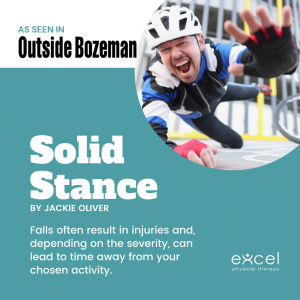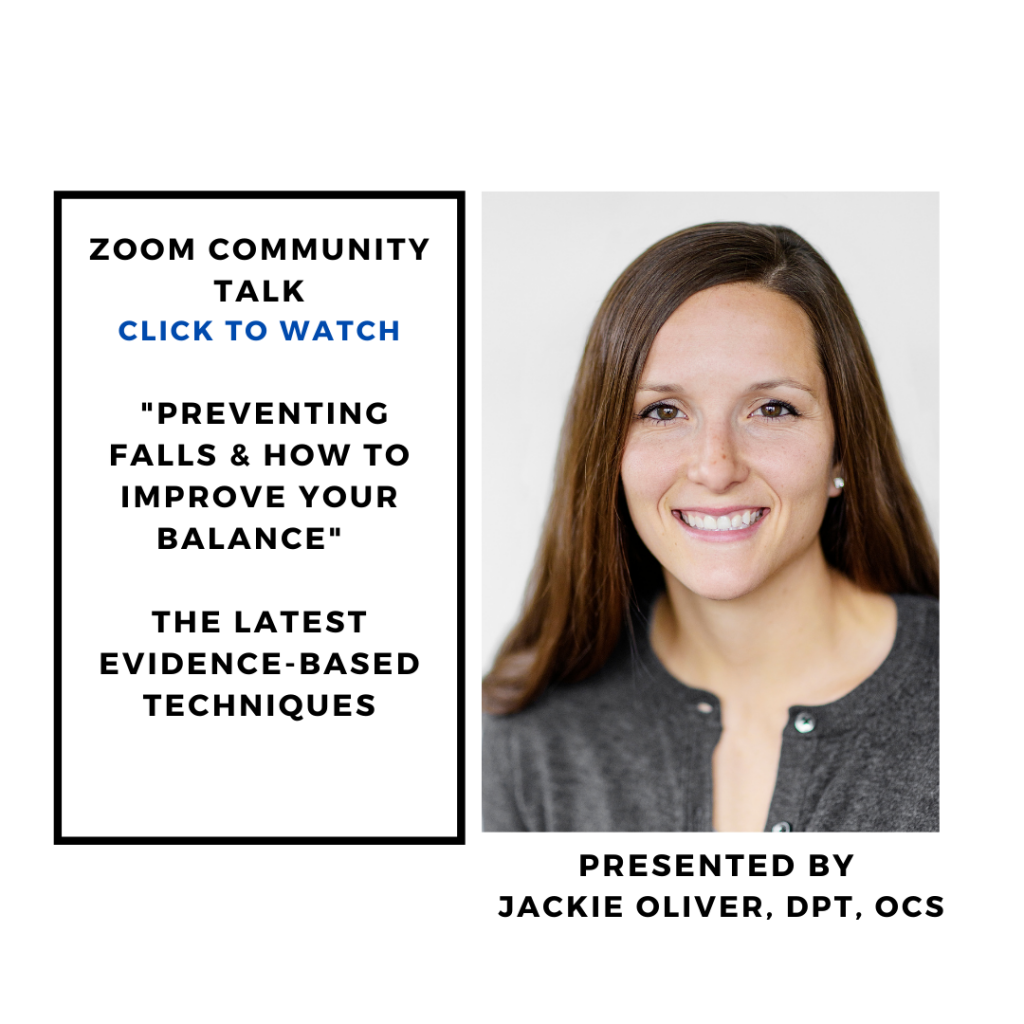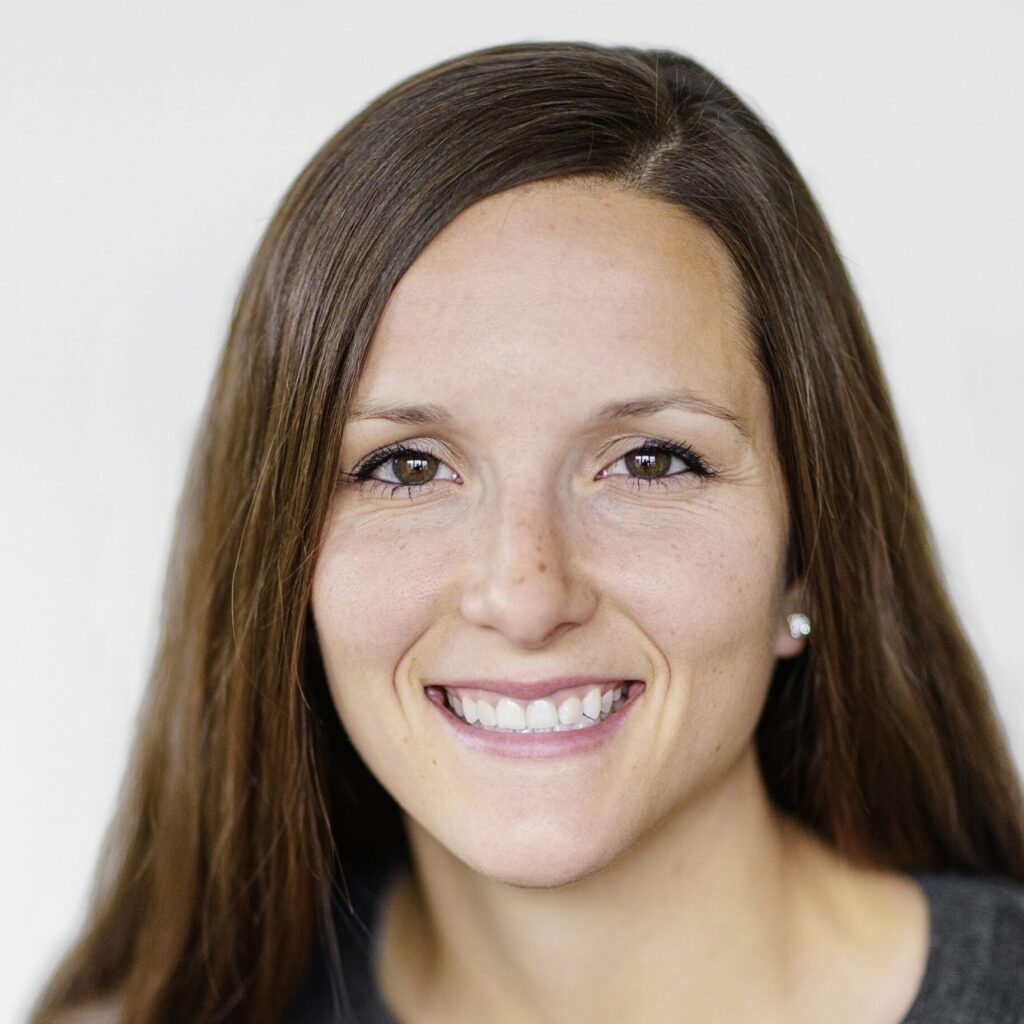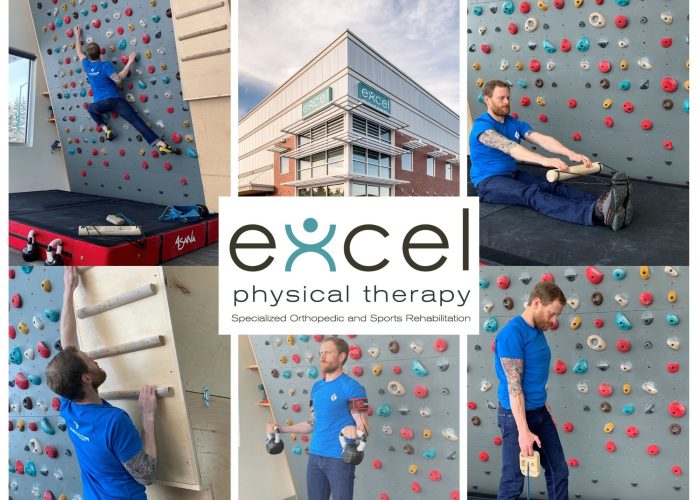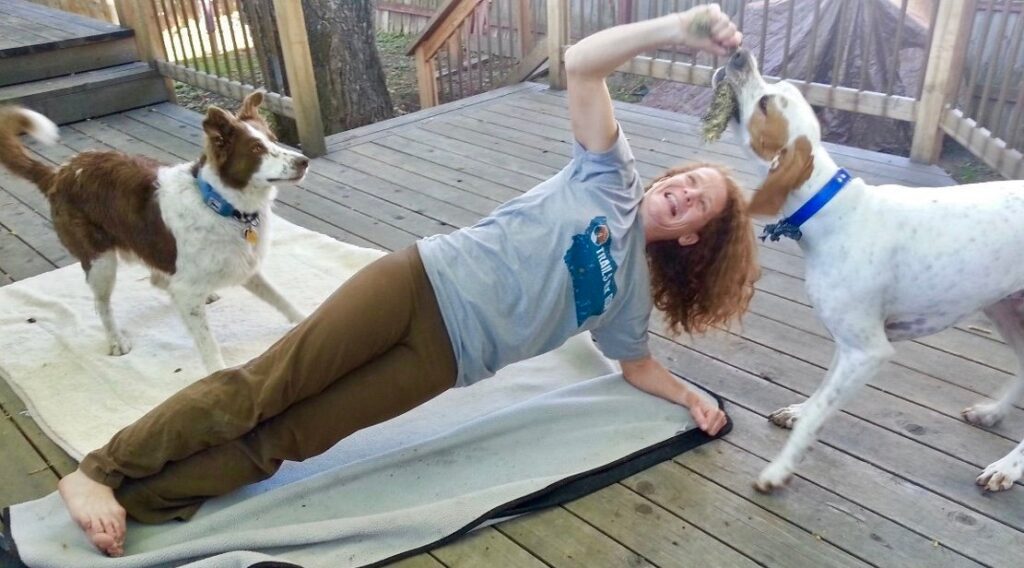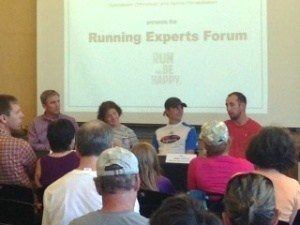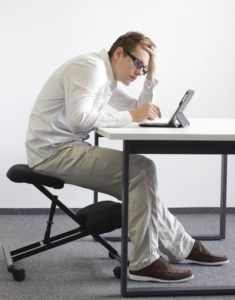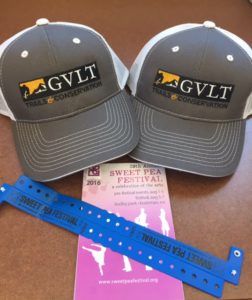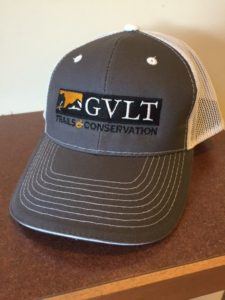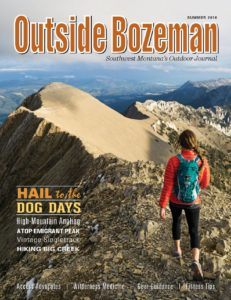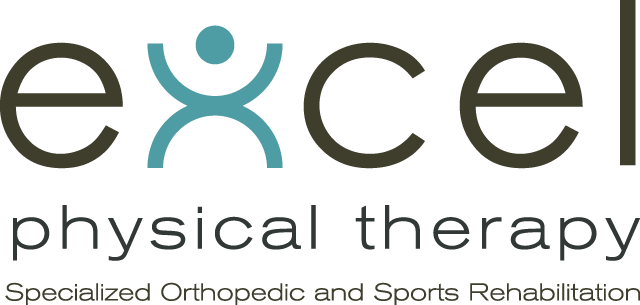Climbing Lab Pop-up @Spire Climbing – 1st Wed of each month, 6:30pm in 2022
First Wednesday of each month in 2022! 6:30pm @ Spire Climbing in Bozeman, Montana – sign up to attend at spireclimbing.com May 4 – Elbow Injury Talk with Dr. Lisa Palomaki, DPT Lisa’s talk is full already on the Spire Climbing website – Watch on @excelptmt’s IGTV page to see her talk streamed live! June 1 – […]
Solid Stance – The fine art of falling by Jackie Oliver, DPT, OCS as seen in Outside Bozeman
From the Outside Bozeman Summer Issue 2021 by Jackie Oliver, DPT, OCS from Team Excel Summertime: the birds are chirping, the flowers are blooming, and the mountains are calling. If you answer that call with vigorous running or biking, at some point you are probably going to fall or crash. Falls often result in injuries and, depending […]
from Outside Bozeman “All Systems Go” – Tips for Injury-Free Ski Season
From The Ouside Bozeman Winter issue 2021-2022 Tips for an injury-free ski season from Excel Phsyical Therapy’s Aj Sobrilsky and Jason Lunden “All Systems Go” By AJ Sobrilsky & Jason Lunden, Winter 2020-21 Click Here to Read
Preventing Falls & Improving Balance Talk with Jackie Oliver, DPT, OCS
Preventing Falls & Improving Balance Talk Presented by Jackie Oliver, DPT, OCS, on Zoom Community Virtual Event – Free & open to the public Zoom recording link: http://bit.ly/3qCZjwW Learn how to assess & reduce your risk of falling and how to improve your balance with the latest evidence-based techniques. Understand how physical therapy can reduce your risk of […]
Complimentary Student Athlete Injury Consultations for ALL Manhattan High School, Manhattan Christian High School and Three Forks H.S. Student Athletes
Free Student Athlete Injury Consultations for ALL Manhattan High School, Manhattan Christian High School and Three Forks High School student athletes One-on-one session with Jackie Oliver, DPT, OCS or Lisa Palomaki, DPT in your local Excel Physical Therapy Manhattan, Montana clinic. Complimentary injury consultation sessions will help determine the best injury treatment options & plan to help return the […]
Fall Events – Live from Uphill Pursuits’ Instagram and Facebook Pages
Thursday (10/22) – 6pm We’re super-excited to share an awesome presentation by Jason Lunden, DPT, SCS and AJ Sobrilsky, DPT, OCS broadcast from our friends & community partner’s Uphill Pursuits Instagram and Facebook pages. What Goes Up Must Come Down — Jason and AJ will be covering injuries in backcountry skiing & split boarding, […]
2020 Jim Bridger Train Run back on! Register/Donate now
The iconic 2020 Jim Bridger Trail Run is back on! Saturday, September 26, 2020. Proceeds help the Bridger Ski Foundation Nordic Pro team AND the Bridger Foothills wildfire relief fund. Register and/or Donate here: https://runsignup.com/Race/MT/Bozeman/JBTR Excel Physical Therapy is a longtime community sponsor of BSF Help us support our BSF Nordic pro skiers and our beloved Bridger mountain community
Consilience with John Onate Podcast – Nikki Kimball Part 2, Maintaining A Love For Running through Injury and Adversity
Please enjoy Consilience with John Onate’s Part 2 podcast with Nikki Kimball: Maintaining A Love For Running through Injury and Adversity. Nikki uses a combination of humor, friendship, medical advice and compassion to overcome injury, aging and now the pandemic. As John Onate says, there is a lot to learn from Nikki Kimball. The Excel PT Team completely […]
Consilience with John Onate Podcast Episode 12: Nikki Kimball Part 1, Living & Thriving With Depression
We are honoring National Suicide Prevention Week by sharing this podcast episode from Consilience with John Onate who features Nikki Kimball from the Excel PT Bozeman running clinic team. Nikki is one of the most competitive and successful Ultra-Endurance athletes in the history of Road and Mountain-Trail-Ultramarathon racing (and one of the kindest and smartest people we know). In this episode from the […]
Outside Bozeman’s “Push & Pull: Essential Ingredients for Running and Climbing” by AJ Sobrilsky, DPT, OCS
“Push & Pull…Essential ingredients for Running and Climbing” is AJ Sobrilsky’s latest article in the Outside Bozeman Summer issue. Read the article here: https://bit.ly/2EUnvJ2 AJ is a physical therapist in Excel PT’s Bozeman clinic who uses specialized gait and the Excel PT Climbing Lab to help treat injury and provide skilled performance assessments. #excelptmt #excelclimbinglab #excelrunningclinic #montana #bozeman #physicaltherapy #running […]
Running Skills: A Talent Or Ability That Comes From Training And Practice – By AJ Sobrilsky & Jason Lunden
By AJ Sobrilsky Who’s ever picked up a golf club and tried to knock it stiff from 130 yards out? That’s a tough feat to accomplish; a skill one might say. In fact, I’d argue that consistently hitting a golf ball where you want it to go and how you want it to look is […]
Our COVID-19 policies • In-clinic & Telehealth appointments available
However you need us, we are here. Whether by in-clinic or telehealth appointment, phone or email, your Excel physical therapist is ready to help you. We realize there is a spectrum of how people feel during this moment. For those that feel comfortable to attend in-clinic appointments, we are seeing patients given certain restrictions (see below). And for those […]
The Answer Is Load, What’s The Question? by AJ Sobrilsky, DPT, OCS
What unique times and circumstances we find ourselves in as climbers. The climbing gyms are closed, all the home gym products are sold out, and as a community we’ve put others best interest ahead of our passion and stayed local respecting the pleas to avoid traveling to popular climbing destinations. So it seems like no better time to take […]
Nikki Kimball’s Training At Home Advice
Nikki Kimball ‘s PT training at home advice: Don’t forget the core! We are lucky in Bozeman, Montana to have enough space to continue walking, running, biking and skiing, at safe social distances, outside. That said, our ability to perform outdoor sports and activities can always be improved through exercises that can be done at home. Use this […]
COVID-19 – our updated policies and Virtual PT Visits Now Available
We are committed to you now and always since 2001. Dear valued clients and community partners, Our leadership team continues to monitor the COVID-19 situation on a daily and often, hourly basis to make decisions regarding our practice. Our promise to you is to keep a safe and clean environment for those who need our services the most. We […]
Our COVID-19 Policy Requests-Precaution and Prevention
Dear valued clients, Your health and well-being are of the utmost importance to us at all times. Excel Physical Therapy and Massage is carefully monitoring local and national COVID-19 developments, which have moved us to implement policy in an effort to do our part for our clients, staff and community. Here are our two COVID-19 […]
Welcome Nikki Kimball, MSPT to the Excel PT Team!
Excel Physical Therapy team is proud to welcome Nikki Kimball, MSPT to the team. One-on-one specialized physical therapy with the ultra running expert dedicated to helping people. Nikki Kimball is a Physical Therapist, Runner’s World Health Advisory Board Member, 2008-2016, Professional Runner, and a RRCA Certified Running Coach. Nikki specializes in the treatment in running injuries and has […]
Jackie Oliver adds OCS to Physical Therapy Title…Team Excel is Celebrating!
Jackie Oliver, DPT, OCS passed the rigorous Orthopaedic Clinical Specialist (OCS) examination in March 2019. Orthopaedics is the specialty dealing with the musculoskeletal system: bones, muscles, cartilage, tendons, ligaments and joints. This examination covered everything pertaining to orthopaedic physical therapy from head to toe. In order to sit for the exam one must have completed at least 2,000 […]
Deep Vein Thrombosis: Everything you need to know about diagnosis and prevention.
By Jackie Oliver, DPT A deep vein thrombosis (DVT) occurs when a blood clot or thrombus forms in one of your deep veins due to slow moving blood. Most often a DVT occurs in the calf or lower leg, however a DVT can also form in other regions of the body such as the arm. Learning what puts you at […]
Running Experts Forum 2019 • April 17th @ 6:30pm
Community Education Series – free and open to all Running Experts Forum Join us for an interactive, moderated panel discussion with Bozeman’s running experts about ALL things running. Door Prizes! Wednesday, April, 17, 2019 6:30-7:30pm Bozeman Public Library Community Room Follow this event on Facebook! Panel discussion topics to include: Injury Prevention • Running mechanics • […]
How to Build Muscle Faster: Blood Flow Restriction Therapy
By Jason Lunden, DPT, SCS Blood flow restriction training (BFR) is a relatively new technique being used in physical therapy and gyms to increase muscle strength. We have been using BFR therapy at Excel Physical Therapy with promising results. BFR therapy utilizes compressive forces from a specialized blood pressure cuff to restrict venous blood flow from a […]
Schedule your next Excel Massage online at Schedulicity.com
Schedule when, how and from where it is most convenient for you! Convenient online scheduling for Excel Massage now available on Schedulicity.com. Click Here to schedule your next massage with James or Britnee. We’re only a phone call away too, 406.556.0562. Click Here to Schedule
Your Chronic Low Back Pain Could Be Instability of the Spine Lurking in the Shadows
While 80% of all US citizens will experience some level of low back pain during their lives, 10.2% (2006 US Survey) of all adults in this country have suffered from chronic low back pain that limits activity for an extended period of time. As a physical therapist that specializes in treating the spine, I often have […]
Special thanks to Nishkian Monks for their work on our new building!
Special thanks from our entire team to the Nishkian Monks team for their structural engineering work on our new Bozeman office building. Learn more about their work here: http://www.nishkian.com/the-new-excel-physical-therapy-building-in-bozeman/
Conquering Low Back Pain Seminar 10/17/2018 @ Nogan’s Cafe in Manhattan
“Conquering Low Back Pain“ presented by Jackie, Oliver, DPT Wednesday, October 17, 2018 | 6:00-7:00pm Nogan’s Cafe – 220 Wooden Shoe Lane in Manhattan Understand anatomic sources of low back pain. How a physical therapist uses specialized techniques to help alleviate low back pain. Learn proven exercises to help low back pain symptoms. Q&A with Jackie after […]
BSD7 Running Camp Workshop helps raise funds for Bozeman Schools Foundation
Jason Lunden was honored to offer a private Running Injury Prevention Workshop for Bozeman School District employees this month in our Bozeman office. We hosted this 2 hour workshop for a nominal fee and raised $186. The Excel Physical Therapy leadership team chose to donate this total amount, paid by district employees, to the Bozeman School Foundation in honor of […]
Excel PT Running Camp 2018
Open registration starts May 10th, 2pm! Big Sky Wind Drinkers members may register April 26-April 30th. Attendee’s of our May 9th, 2018 Running Strong Seminar at the Bozeman Library will also receive priority registration access. Excel Physical Therapy is hosting our annual Running Camp on Saturday, June 16, 2018, 8AM-12PM, at our new state-of-the-art Bozeman location. We are located at 1823 West […]
“Wrong Angle” article from Outside Bozeman Magazine
By Jason Lunden, DPT, SCS Click here to read Jason Lunden, DPT, SCS’s article, “Wrong Angle” from Outside Bozeman Magazine’s Spring issue. Saddle tilt, pain and happy riding all from a physical therapist’s perspective. Jason Lunden, DPT, SCS is a Certified Clinical BikeFit Pro Fitter, Sports Clinical Specialist and owner at Excel Physical Therapy of Bozeman and Manhatta, Montana.
Running Strong Seminar – 5/9/2018 @ Bozeman Library
Running Strong: How to Run While Preventing Injury Join us Wednesday, May 9, 2018 at 6:30pm in the Bozeman Library Community Room for a lively discussion on running mechanics and injury prevention. Our team of running specialists, Megan Peach, DPT, OCS, CSCS, and Jason Lunden, DPT, SCS will review running injury prevention advice to help you run strong and pain-free. Our Physical Therapists will […]
Book a Massage Therapy appointment at our Bozeman office
Click here to learn more about massage therapy services in our Bozeman office.
Physical Therapy Can Help with Balance and Fall Prevention
By Jackie Oliver, DPT According to the APTA website, one-third of people over the age of 65 and up to half of people over the age of 80 will end up falling this year. Falls can diminish your ability to lead an active and independent lifestyle. Decreased balance and increased risk of falling are two things […]
WHAT IS DIRECT ACCESS AND WHY YOU SHOULD CARE?
By Jackie Oliver, DPT Direct Access. It sounds like an exclusive VIP backstage pass but, in reality, it’s an all access pass for individuals to see their physical therapist without a doctor’s referral. That’s right, you don’t have to spend time and money to go see a doctor before seeking physical therapy treatment. A study […]
Advanced Training…we’re at it again! Jackie Oliver, DPT completes shoulder and knee course in Seattle
Jackie Oliver, DPT, physical therapist with Excel Physical Therapy of Bozeman and Manhattan, recently completed the Kevin Wilk Shoulder and Knee Course in Seattle, Washington. This advanced-training course presented the most recent, relevant and state-of-the-art treatment options for the most challenging and unusual problems of the shoulder and knee joints. This evidence-based course also focused on the most comprehensive […]
Jason Lunden, DPT, SCS attends US Ski & Snowboard Class at the USSA Center of Excellence
By Jason Lunden, DPT, SCS Jason Lunden, DPT, SCS, of Excel Physical Therapy, recently attended the US Ski & Snowboard Team Medical Emergencies in Skiing and Snowboarding (MESS) Course at the USSA Center of Excellence in Park City, UT. The course focused on concussion evaluation, management and rehabilitation, as well as athlete development for ski and snowboard athletes. […]
What’s The Best Medicine For Your Back Pain?
By Jackie Oliver, DPT It’s summer time and all you want to do is to be outside enjoying the weather and many outdoor activities that Bozeman has to offer. The only problem is, you have this nagging low back pain holding you back. You keep thinking, should I stay home and rest it or do […]
Advanced training…we’re at it again!
Megan Peach, DPT, OCS, CSCS and Jackie Oliver, DPT, physical therapists with Excel Physical Therapy of Bozeman and Manhattan, recently completed the North American Institute of Orthopedic Manual Therapy (NAIOMT) Lumbopelvic Spine Course in Seattle, Washington. The main objective of this course was to guide evaluation and management of treatment programs for people with low back pain or other serious pathologies in […]
Running Shoes: Comfort vs. Function
By Megan Peach, DPT, OCS, CSCS Have you ever stood in front of a wall of running shoes wondering which shoe is right for you? Maybe the Hokas with the super cushioned sole that feel like you’re running on clouds? Or the Brooks trail runners since the trails have cleared up and you’ve been wanting […]
Excel PT Running Camp 2017
You are invited! Excel Physical Therapy is hosting our annual free Running Camp on Saturday, June 10, 2017, 8am-12pm. We offer this camp each year because we want to serve the community we love. This comprehensive workshop helps to ensure you are running correctly to avoid pain & injury. Excel Physical Therapy is hosting the running boot camp at our Bozeman location at 1125 […]
Proud sponsors of Fast and Female Champ Chat
Bozeman, Montana’s inaugural Fast and Female Champ Chat at The Mountain Project gym A big thank you to our patients and clients who make it possible for us to sponsor inspiring local community events. On May 7, 2017, Excel Physical Therapy sponsored Bozeman’s first ever Fast and Female Champ Chat where accomplished ambassadors brought inspiration and encouragement to help girls […]
Hip to be Cool: Preventing Running Injuries – Outside Bozeman Magazine
By Jason Lunden, DPT, SCS Click Here! Join Jason Lunden, DPT, SCS and Megan Peach, DPT, OCS, CSCS at our Running Experts Forum event on 3/29/2017, 6:30pm at the Bozeman Library for a lively discussion of ALL things running. Our Physical Therapists who specialize in Running Injury Treatment and Running Evaluations along with several Bozeman running expert special guests will […]
Running Experts Forum • March 29th @ 6:30pm
Join us for an interactive, moderated panel discussion with Bozeman’s running experts about ALL things running. Wednesday, March 29, 2017 6:30-7:30pm Bozeman Public Library Community Room Door Prizes! Follow this event on Facebook! Panel Guests: Mike Wolfe, owner of The Mountain Project training gym and professional mountain ultrarunner Casey Jermyn, owner, Bozeman Running Company and Bozeman High School cross-country […]
Are You an “ACTIVE” Couch Potato?
By Jackie Oliver, DPT A big draw to the city of Bozeman, Montana is the proximity to recreational activities and easy access to outdoors. In this community, we are above average when it comes to being active but have we really decreased our health risks? We exercise on a regular basis so we don’t have to […]
Stress Fractures: From Trail to Icy Sidewalk
by Megan Peach, DPT, OCS, CSCS Snow flurries don’t stop most runners from running here in the Gallatin Valley and while running may continue well into cooler temperatures, don’t let a running injury inhibit your ski season! Especially a stress fracture. Up to 10% of runners may suffer from a stress fracture at some point […]
Excel PT is a proud 2016 Huffing for Stuffing Sponsor
The Excel Physical Therapy Team is a proud sponsor of the 10th Annual Huffing for Stuffing Thanksgiving Day Run again this year. We greatly appreciate the support of our patients so that we can give back to our community through this sponsorship and help stock the Gallatin Valley Food Bank shelves. Get those pies baked early so you have some […]
Posture Matters! Seminar 10/5/2016 @ Bozeman Library
Posture Matters! Seminar Wednesday, October 5, 2016 6:30-8:00 pm Bozeman Public Library Large Community Room seating limited to the first 100 attendees Presented by David Coletta, MPT, CMPT What You Will Learn: Learn why your posture matters, how it can lead to health concerns, and what you can do to improve yours now. Please bring your […]
Proud sponsors of the 2016 Bozeman Marathon
Excel Physical Therapy is proud to sponsor the 2016 Bozeman Marathon. Best wishes for a great race and thanks to all of the volunteers!
Excel PT Team serving #worldptday @ God’s Garden Bozeman
Wonderful day working in God’s Garden Bozeman with the Excel Physical Therapy team #worldptday #excelptmt #bozeman #addlifetoyears
Proud sponsors of Blitzz’s Yellowstone Kick-off Classic Soccer Tournament!
Excel Physical Therapy is proud to sponsor Blitzz FC’s Yellowstone Kick-off Classic Soccer Tournament this Labor Day weekend, September 3-4, 2016. Our physical therapy team will be at the field injury tent with ice and help for any player injuries or screening needs. Welcome soccer teams, players and families to Bozeman! Have a great tournament!
Running Post-partum: Ready to Run after Baby Arrives?
Hey Mamas! Ready to run after baby arrives? Although the current guidelines suggest that returning to activity post-partum is safe 6 weeks after natural delivery and 8 weeks after cesarean section, here are some things to consider before jumping back into your running program: How’s your core? Pregnancy can wreak havoc on our core […]
We are proud sponsors of the 2016 Sweet Pea Run!
Excel PT is proud to sponsor the 2016 Sweet Pea Run 5K and 10K. The Sweet Pea Run is a Bozeman running tradition! Learn more about how to run in this year’s race by clicking here!
Survey Raffle: 2 Sweet Pea Festival Wristbands & 2 GVLT Trucker Hats!
Congrats to Kate Barber! The winner of this summer’s Survey Raffle! Enjoy the Sweet Pea Festival and your GVLT hats! Thank you to everyone who responded to our survey and for your kind comments and feedback. We really appreciate our patients! This month thru August 2, 2016, we are entering all patients who return their […]
Survey Raffle: 2 Sweet Pea Festival Tickets & 2 GVLT Trucker Hats!
Here at Excel Physical Therapy, our mission is to provide our patients with excellence in physical therapy. Our patient’s satisfaction is the foundation of our practice. When patients are discharged from treatment, we provide our patients with a postage-paid survey card to return to our office so we can learn about/from their experience. We are […]
Advanced Training…we’re at it again!
Megan Peach, DPT, OCS, CSCS, physical therapist with Excel Physical Therapy’s Bozeman office, recently attended the 2016 Science of Running Medicine Spring Symposium in Nashville, Tennessee. This advanced training course focused on running mechanics evaluation processes along with video assessment analysis approaches and helps identify running techniques that may contribute to injury. The course also provides additional […]
David Coletta’s Outside Bozeman article: Back in the Saddle: Dialing in your Bike Seat
Outside-Bozeman-David-Coletta-BikeFitting-Article-Summer-2016
Join the 2016 Sweet Pea Run Training Runs!
Training runs with a goal – The Sweet Pea 5K or 10K! For anyone who wants to run their first 5K or 10K, new to running or is just looking for a running schedule. Where: Schnee’s downtown (35 E. Main Street.) When: 8am every Saturday from June 25th – July 30th (June 25th, July 2nd, 9th, 16th, 23rd, […]
Spotlight on Community Event ~ Mountain Belles Navigation Clinic
Here’s a tip on an upcoming local event sponsored by the Mountain Belles that will help you find yourself after you Get Lost in Montana. Mountain Belles is a non-profit organization run by women, for women. They welcome women in Bozeman and surrounding areas of all ages (21 and up) and abilities to join them in friendship, activity, learning and adventure. All […]
Outside Bozeman article: Hip to Be Cool by Jason Lunden, DPT, SCS
Check out the latest issue of Outside Bozeman for Jason Lunden, DPT, SCS’ article, “Hip to Be Cool” to review the principles of running injury prevention to keep your running season injury-free. http://www.outsidebozeman.com/magazine/archives/spring-2016/hip-be-cool
Prevention! See Us Before Your Injury
Why wait until after you are injured to see a physical therapist? Did you know that a great time to see a physical therapist is before you are injured? I recently evaluated a patient who wanted to see a physical therapist to learn a home exercise program to prevent future episodes of low back pain. Orthopedic physical therapists are trained in […]
Sign up for GVLT’s Make Tracks for Trails Skiathon 2-28-2016
The Gallatin Valley Land Trust is gearing up for the 21st annual Make Tracks for Trails Skiathon. Excel Physical Therapy is committed to giving back to our community and we are proud to help sponsor the GVLT! Raise at least $50 in pledges, then join the GVLT on Sunday, February 28, 2016, at the Lindley Center. Registration begins at 9:30 and and […]
Injury Prevention in Nordic Skiing: Elbow & Shoulder Pain
Due to the repetitive stress from poling, Nordic skiers can develop overuse injuries of both the elbow and/or the shoulder. The most common of these are medial epicondylitis and shoulder impingement syndrome. The underlying cause of the development of these injuries is multi-factorial: poling technique, pole length, and poor strength and conditioning. Shoulder impingement […]
Injury Prevention in Nordic Skiing: Knee Pain
Patellofemoral pain, or anterior knee pain, is the most common type of knee pain in Nordic skiing. Repetitive stress to the soft tissue around the patella (knee cap) occurs due to poor tracking of the patella in the femoral groove. This poor tracking can be the result of hip weakness causing poor control of movement […]
Injury Prevention in Nordic Skiing: Lower Back Pain
Low back pain has been found to be more common in cross-country skiers, than non-athletic controls1. Compared to skate skiing, low back pain is more prevalent in classic skiing because of the repetitive flexion-extension loading pattern of double poling. In addition to making sure your technique is sound, it is important to make sure you […]
Injury Prevention in Nordic Skiing: Technique
Often I think Nordic (cross-country) skiing is the perfect sport for fitness. Nordic skiing is a great workout and way to enjoy the outdoors in winter. Plus, it has a very low injury rate. In fact compared to alpine skiing and snowboarding, Nordic skiing has 20X fewer severe injuries and 5X fewer injuries overall.1 […]
Technique & the Prevention of Alpine Ski Injuries: Part 4
Nearly all injuries in alpine skiing are classified as traumatic, or due to a fall. As mentioned earlier, under Strength & Injury Prevention, the majority of knee injuries in alpine skiing occur on the left knee. Therefore it is important to work on your ski technique to be able to turn equally well to your right and […]
Equipment and the Prevention of Alpine Ski Injuries: Part 3
To reduce your risk of injury it is important to make sure your bindings are properly mounted and maintained. Your ski is effectively a long lever arm and if your ski does not release properly it will put a tremendous amount of force through your knee. Therefore it is important to make sure your DIN […]
Outside Bozeman article: Best Foot Forward by Megan Peach, DPT, OCS, CSCS
Check out the latest issue of Outside Bozeman for Megan Peach, DPT, OCS, CSCS’s article, “Best Foot Forward” for the benefits of custom orthotics in ski boots. http://www.outsidebozeman.com/magazine/archives/winter-2015-16/best-foot-forward
Strength and Injury Prevention in Alpine Skiing: Part 2
Developing and performing a proper pre-season/dry-land strengthening program can help to reduce your risk of injury and improve your performance. Alpine skiing is unique in that it places equal demands on both sides of the body, as one has to be able to turn equally well to the right and the left. Research has found […]
Winter Injury Prevention: Alpine Skiing, Nordic Skiing, & Snowboarding – Part 1
Winter Injury Prevention: Alpine Skiing, Nordic Skiing, & Snowboarding: Part 1 At Excel Physical Therapy, winter is often our busiest time of year; and with good reason, many of us choose to live here for our winter pursuits of skiing and snowboarding. Unfortunately these sports have a high injury rate and can lead to serous […]
“What Is That Ringing In My Ears?” by David Coletta, MPT, CMPT
Although tinnitus, or ringing in the ears, can be a sign of serious brain pathology, tumors, and hearing loss, this condition can also be often diagnosed by your physician as idiopathic tinnitus. Such a diagnosis indicates no known or verifiable cause to the ringing in your ears. Ruling out the more concerning problems through brain […]
Advanced Training News…we’re at it again!
Megan Peach, DPT, OCS, CSCS, physical therapist with Excel Physical Therapy of Bozeman and Manhattan, recently completed a three day course titled, “Manual Therapy and Pregnancy: An Integrative Approach” in Portland, Oregon. This course, through the North American Institute of Orthopedic Manual Therapy (NAIOMT), focused on the physical and physiological changes during pregnancy with an objective to gain […]
Global PT Day of Service!
Jason Lunden of Excel Physical Therapy and a team of fellow Bozeman physical therapists served dinner at HRDC’s The Community Cafe on the Global PT Day of Service in October 2015. Glad to join over 1500 physical therapists across the globe for a day of service. #PTDOS #Bozeman
We’re proud sponsors of the MSU Bobcat Triathlon!
Excel Physical Therapy is committed to helping support our community as one of our core values. As a result, we are proud co-sponsors of the 2015 Montana State University Bobcat Triathlon! For registration and course information, please click here: http://www.bobcattriathlon.com/ Best wishes to all race participants and thanks to the volunteers!
We’re proud sponsors of the 2015 Bozeman Marathon
Excel Physical Therapy is committed to helping support our community as one of our core values. As a result, we are proud co-sponsors of the 2015 Bozeman Marathon! For registration and course information, please click here: http://www.bozemanmarathon.com Best wishes to all race participants and thanks to the volunteers!
We’re proud sponsors of the Blitzz FC Yellowstone Kick-Off Classic Soccer Tournament
Excel Physical Therapy‘s Physical Therapy team will be on the field during the Blitzz FC Yellowstone Kick-Off Classic 2015 soccer tournament to help with on field medical needs and injury screens. Look for our flag and booth. We’re here to help!
Free Sweet Pea Run Finish Line Injury Screens!
Look for the Excel PT booth at the 2015 Sweet Pea Run Finish Line. Our PT Team is here to help you with any post-run aches and pain prevention tips. Come on over and Ask Our PT! We are happy to help sponsor the 2015 Sweet Pea Run. Have an awesome race! Click Here for 2015 Sweet […]
Advanced Training News…we’re at it again!
Jason Lunden, physical therapist and co-owner of Excel Physical Therapy of Bozeman and Manhattan, Montana, recently completed Rehabilitation of the Injured Runner: An Evidence-based Approach course held at the University of Minnesota. Hosted by the American Physical Therapy Association, the course focused on runner-specific treatment, including gait analysis and runner drills, for running injuries.
Truing Your Frame – Fit Your Bike to Avoid Injury from “Outside Bozeman”
from Outside Bozeman Magazine Spring 2014 Issue Fit your bike to avoid injury While cycling is relatively easy on your joints, because of the constrained position and repetitive nature of the sport, it can be easy to develop overuse injuries. These injuries are often attributed to ramping up training mileage too quickly or being improperly positioned […]
Running Experts Forum | May 4th @ 6:30pm
Community Education Series – free and open to the public Running Experts Forum Join us for an interactive, moderated panel discussion about ALL things running. Monday, May 4, 2015 6:30-7:30pm Bozeman Public Library Community Room Door Prizes! Panel Guests: Nikki Kimball, Ultra Runner and Physical Therapist Jason Lunden, Sports Physical Therapist with Excel Physical Therapy Casey Jermyn, […]
Advanced Training News…we’re at it again!
David Coletta, physical therapist and co-owner of Excel Physical Therapy of Bozeman and Manhattan, recently completed the BikeFit Clinical Level 2 advanced training in Seattle, Washington. His instruction included upper level road bike fitting and tri-bike/time trial bike fitting. David provides bike fitting services out of the Bozeman location and offers both health insurance billing and […]
Expanded Appointment Hours & Days in our Manhattan Location!
Excel Physical Therapy has expanded our treating hours in our Manhattan location! Our physical therapist team is treating patients Mondays through Thursdays. We see patients on Mondays, Tuesdays and Thursdays from 7:30am-6pm, and Wednesdays from 8:15am-5:15pm. Please call us at 406-284-4262 to schedule a physical therapy appointment that is convenient for you or to see […]
Advanced Training News…we’re at it again!
Megan Peach, DPT, OCS, CSCS, with Excel Physical Therapy of Bozeman and Manhattan, recently completed a North American Institute of Orthopedic Manual Therapy (NAIOMT) advanced training course in Seattle, Washington. This course, taught by Brett Windsor, PT, PhDc, MPA, OCS, FAAOMPT, offered instruction on biomechanical assessment of the lower extremity and rationale for individualized treatment programs. Treatment techniques […]
Jason Lunden, featured presenter at Twin Cities Sports Medicine Conference
Jason Lunden, DPT, SCS, physical therapist with Excel Physical Therapy of Bozeman and Manhattan, was a featured presenter at this year’s Twin Cities Sports Medicine Conference in St. Paul, MN. Jason gave a podium presentation and a breakout session on the rehabilitation of hamstring injuries, to an audience of orthopedic surgeons, sports medicine physicians, physical therapists […]
“Conquering Neck Pain” Seminar | 12/3/2014 6:30pm
Community Education Series – free and open to the public – join us! “Conquering Neck Pain: Self-Help Techniques & Treatment Options” Presented by David Coletta, MPT, CMPT, Certified Manual Therapy Specialist Wednesday, December 3, 2014 6:30pm-7:30pm Bozeman Public Library Community Room What You Will Learn: How neck pain develops and becomes chronic. What the anatomic sources […]
Advanced Training News…We’re at it again!
David Coletta, MPT, CMPT, physical therapist and owner of Excel Physical Therapy of Bozeman and Manhattan, recently completed a seven day advanced spinal manipulation training from the North American Institute of Orthopedic Manual Therapy (NAIOMT). The course was held at Andrews University in Berrien Springs, Michigan, and was taught by Erl Pettman, PT, MCSP, MCPA, FCAMPT, a […]
Leg Length Differences-Does it Matter?
There is no doubt that leg length differences (LLDs) exist, but a lack of agreement exists about diagnosing the condition, their functional importance, and how to treat them. How many of us have been to the physical therapist, massage therapist, or chiropractor and were told that our legs were not of equal length? Lying face […]
Excel PT is proud to help sponsor Sweet Pea Run 2014!
Excel Physical Therapy is proud to help support the Sweet Pea Run 2014 on August 2, 2014. At packet pick up/registration, register to win an Runner’s Injury Clinic Screening Appointment with our sports pts. Our raffle will start on Thursday, July 31st at First Security Bank in the basement. Look for the Excel PT table! This […]
Recent Research on Patellofemoral Knee Pain – It’s All About the Angle
Do you have patellofemoral knee pain? A recent study by Christopher Powers et al. in the Journal of Orthopaedic & Sports Physical Therapy suggests that knee angle during quadriceps strengthening exercises affects patellofemoral joint stress. Because excessive joint stress may contribute to patellofemoral pain, the author’s purpose was to determine which exercises were minimally stressful to the […]
Megan Peach, DPT, CSCS is an Orthopedic Clinical Specialist (OCS)
Megan Peach, physical therapist with Excel Physical Therapy of Bozeman and Manhattan, has received the advanced Orthopedic Clinical Specialist (OCS) designation after passing a rigorous exam from the American Physical Therapy Association‘s American Board of Physical Therapy Specialties. The specialist certification program provides formal recognition for physical therapists with advanced clinical knowledge, experience, and skills in a special […]
Thank you Bozeman Barracudas Swim Team!
Thank you Bozeman Barracudas Swim Team for inviting Jason Lunden, DPT, SCS of #Excel Physical Therapy to speak on the “prevention of shoulder injuries for swimmers”. The Excel Physical Therapy team is always happy to support our local sports teams with injury prevention and sports performance information.
Excel PT offering Free Bike Fitting Screenings at GVLT Longest Day of Trails 3-6pm
Friday, June 20, 2014 Montana Ale Works from 3-6pm David Coletta, MPT, CMPT and Jason Lunden, DPT, SCS of Excel Physical Therapy will be providing free Bike Fitting Screenings at the Longest Day of Trails Headquarters in Bozeman, Montana. Come by with your bike to learn how David and Jason can help fit your bike to your body. […]
“Injury Prevention for Runners” Seminar Wednesday June 4, 2014
Community Education Seminar ~ free and open to the public “Injury Prevention for Runners” Seminar presented by Excel Physical Therapy’s Jason Lunden, DPT, Sports Clinical Specialist Wednesday, June 4, 2014 6:30-7:30pm Bozeman Library Large Community Room Bring your running injury questions for Jason Special guest Damian Stoy of Wholistic Running Cool Giveaways! Learn how to recognize the […]
Hiking with Your Baby as featured in MT Parent Magazine
Click Here to access the latest article written by #ExcelPTMT‘s Megan Peach, DPT, CSCS in Montana Parent Magazine: Hiking with Your Baby http://www.mtparent.com/home/hiking-with-your-baby-by-megan-peach.html
Pain on the Bottom of your Foot? Plantar Intrinsic Training is a Solution
Plantar Intrinsic Training by Matt Heyliger, DPT, Excel Physical Therapy Over-pronation (the inward roll of the foot while walking or running) is a common contributing factor in the development of several lower extremity injuries including plantar fasciitis, Achilles tendinopathy, patellafemoral knee pain and other overuse conditions. Recent research addressing the contributing factors to the development of […]
Springtime Southside Saturdays…Let’s hit the trails starting May 10th!
Birds are chirping, sun is shining (today at least!) and snow is melting. Time to think about hitting the trails and moving our bodies with some springtime trail fun. Here’s a way to enjoy Southside Bozeman while supporting our beloved trails and the Gallatin Valley Land Trust. Southside Saturdays is brought to you from our […]
Proper Computer Ergonomics for a Healthy Neck & Back
Using computers have become a normal part of most people’s daily lives. For many of us, sitting at a desk top or laptop computer can last several hours every day. Do you suffer from neck pain, upper back pain, or headaches? Could poor posture at the computer be a contributing factor to such complaints? A […]
David Coletta’s Personal Bout with Acute Neck Pain: The Onset Part 1
My Personal Bout with Acute Neck Pain: The Onset ~ Part 1 of 3 The Onset Evaluating and treating individuals with neck pain has been my specialty over the past 15 years. I have literally treated over a thousand people suffering from this affliction. Recently, neck pain became a much more personal issue, as I […]
David Coletta’s Personal Bout with Acute Neck Pain: Recovery Part 2
My Personal Bout with Acute Neck Pain: Recovery ~ Part 2 of 3 Recovery As a physical therapist specializing in treatment of the spine, I had a great deal of experience with the physicians at Bridger Orthopedic & Sports Medicine. This seemed like a good place to seek advice and help for my agonizing condition. I […]
Excel Physical Therapists of Bozeman & Manhattan are CareCredit Providers
Excel Physical Therapy of Bozeman and Manhattan, Montana are CareCredit providers. CareCredit is a personal healthcare credit card which acts like a revolving line of credit for out-of-pocket healthcare expenses. Our office offers the option of no interest for 6 or 12 months. Our patients and their families can use their CareCredit account to pay for deductible, and […]
BSF’s Torin Koos has made the US Olympic Ski Team!
Congrats to Bridger Ski Foundation’s skier Torin Koos on his nomination for the 2014 Winter Olympics in Sochi! Go Torin!
Congrats to BSF Nordic National Champions Jennie Bender & Torin Koos!
Jennie Bender wins gold at 2014 Senior National Championships in Soldier Hollow, Utah Congratulations to Bridger Ski Foundation Elite Team skiers, Jennie Bender and Torin Koos for their skate sprint gold medal wins at the 2014 Senior Nationals in Soldier Hollow, Utah! Excel Physical Therapy is proud to help sponsor the BSF Nordic Elite Ski Team. Congratulations […]
from Outside Bozeman “Tight Lines – Look Good and Ski Great”
The following article is from the Winter 2013/2014 issue of Outside Bozeman. Click Here for the full article link: http://www.outsidebozeman.com/activities/skiing/tight-lines Here is a snapshot from the printed issue: “Tight Lines – Look Gook and Ski Great” by Jason Lunden, DPT, SCS Aside from protective gear like helmets and wrist guards, proper strength and conditioning is your […]
Get Huffing For Stuffing & Support the Food Bank!
Excel Physical Therapy is proud to again help sponsor the Huffing For Stuffing Thanksgiving Day Run in 2013! Thanksgiving Day, November 28, 2013, Bozeman, Montana. Event proceeds benefit the Gallatin Valley Food Bank. Thanks to your generosity and participation, Huffing For Stuffing raised $45,500 in 2012. The event’s six-year cumulative total is $142,700 donated to the Gallatin Valley […]
Activate Your Glutes! Here’s How
Did you know? The gluteal muscles are an important muscle group for everyday functional activities. The gluteus medius muscle acts to stabilize the pelvis during single limb activity such as going up or down stairs, balance exercises, and even walking. The gluteus maximus helps to maintain trunk control & propel the body forward during walking […]
Torn Rotator Cuff? You may not need surgery…
A new multicenter prospective study (good evidence!) shows physical therapy is very effective in the treatment of full-thickness rotator cuff tears. In the October issue of the “Journal of Shoulder and Elbow Surgery”, JE Kuhn et al. showed that people with full thickness rotator cuff tears that were not the result of trauma (their injury was not the […]
Effects of High Heels on Body
Now we love a good pair of heels too, but we saw this information and wanted to pass it on. Perhaps worn more in moderation…. “Ever wondered the effects of high heels on your feet and body? Often painstakingly selected to complete outfits, high heels put stress not just on feet, but on ankles, knees and […]
October is National Physical Therapy Month!
National Physical Therapy Month (NPTM) is a commemoration held each October by the American Physical Therapy Association (APTA). NPTM is designed to recognize the impact that physical therapists and physical therapist assistants make in restoring and improving motion in people’s lives. We encourage you to browse the APTA MoveForward website and follow them on Facebook, Twitter, and Pinterest to learn about […]
Jason Lunden DPT, SCS wins Emerging Leader Award from APTA
Excel Physical Therapy is pleased to announce Jason Lunden, a member of their physical therapy team, has been awarded the 2013 Emerging Leader Award from the American Physical Therapy Association (APTA). This prestigious award honors a physical therapist that has demonstrated extraordinary service early in his or her physical therapy career and has exceptional contributions […]
Youth Sports Injury Seminar Handouts and Resources
Here are the links to the injury prevention handouts and resources from Excel Physical Therapy’s Community Education Series Fall 2013 Seminar “Why Do Kids Get Injured? A Youth Sports Injury Seminar for Parents, Coaches and Athletes Ages 18 & Under” For additional information, please contact Jason Lunden, DPT, SCS at 406.556.0562 or by email: jason “at” […]
Youth Sports Injury Seminar for Parents, Coaches and Athletes Ages 18 & Under – 9/12/13 6:30pm
Join us for Excel Physical Therapy’s Fall 2013 Community Education Series Seminar “Why Do Kids Get Injured? A Youth Sports Injury Seminar for Parents, Coaches and Athletes Ages 18 & Under” Thursday, September 12, 2013 6:30-7:30pm Bozeman Public Library Community Room free and open to the public Jason Lunden, DPT, Specialist in Sports Physical Therapy, […]
Run for Clean Water in Ethiopia 8/17/13
Run for clean water in Ethiopia through the beautiful Black Bull Community in the 4th Annual Scramble For Ethiopia at The Commons at Baxter & Love Lane, Bozeman, Montana. 15K, 4Miles & Kid’s Run Cash Prized & Free Child Care August 17th, 2013 For all race details, visit SCRAMBLEFORETHIOPIA.COM Excel Physical Therapy is a proud sponsor […]
Pregnancy and Exercise Tips by Megan Peach, DPT, CSCS
Just in case you missed our most recent library presentation on pregnancy & exercise, here’s a recap with some helpful tips for exercising while pregnant! Pregnancy is an incredible time in a family’s life with LOTS of changes for everyone involved and LOTS of questions about the unknown. As an expectant mother myself, I […]
What to Expect From PT & How to Make It Effective
Sharing a link we thought could be helpful: http://www.macon.com/2013/06/03/2502440/physical-therapists-explain-what.html Our physical therapists at Excel Physical Therapy are always willing to answer your questions on how physical therapy can help you. Just call us at 406-556-0562 or email us at “info at excelptmt.com”
Can you name 3 benefits of being active? We Can!
Can you name 3 benefits of being active? We can: http://1.usa.gov/XS2YlT
Pregnancy Exercise Recommendations Handout
Thank you to all who attended Megan Peach, DPT, CSCS’ presentation last night at the @Bozeman Library! Per Megan’s recommendations, be sure to consult your health care provider before beginning or adjusting any exercise program. Here is the link to Megan’s handout for the exercises discussed: 201306_exercise&pregnancy_handout If you have any further questions, contact Megan […]
“Pregnancy & Exercise: Rewards, Risks & Recommendations” Seminar June 5th, 2013 6:30pm
Community Education Seminar ~ free and open to the public “Pregnancy & Exercise: Rewards, Risks & Recommendations” presented by Megan Peach, DPT, CSCS Wednesday, June 5, 2013 6:30-7:30pm Bozeman Library Large Community Room Come dressed to move! Discover the benefits and risks of aerobic and resistance exercise during pregnancy. Learn how to exercise safely with […]
“Pregnancy & Exercise” Seminar Featured in Montana Parent Magazine
Thank you Montana Parent Magazine for the recommendation for Megan Peach, DPT’s upcoming “Pregnancy & Exercise: Rewards, Risks & Recommendations” Seminar on Wednesday, June 5th, #Bozeman Library, 6:30-7:30pm. Free & open to the public. See it here: http://www.mtparent.com/index.php/home/pregnancy-exercise-rewards-risks-recommendations-seminar-june-5th-2013-630pm.html
Thank you to Bozeman Running Co. and Wholistic Running!
Thank you to the Running Injury Prevention Seminar presenters at the recent @ExcelPTMT Community Education Series talk Friday May, 17, 2013 at the #Bozeman Library. #BozemanRunningCompany and #WholisticRunning along with #ExcelPTMT’s Jason Lunden all provided a fun and info-packed evening to a great crowd in the Community Room. We all had fun sharing the latest […]
Handout for 2013 Running Injury Prevention Seminar
Click here for the May 17, 2013 Running Injury Prevention Seminar Handout: 2013 library running injury seminar handout If you have any further questions, please call our Bozeman office at 406.556.0562.
Tonight 6pm Running Injury Prevention Seminar @ Bozeman Library
Tonight’s Cool Giveaways at the Excel Physical Therapy Running Injury Prevention Seminar: Pair of Running Shoes and Shoe Fitting from Bozeman Running Company,Private ChiRunning.com Lesson from Wholistic Running, Running Injury Screen Appointment from Jason Lunden, ChiRunning Book, and Excel PT stainless coffee tumblers with Free coffee. Everything to get you out the door and running right. Today, Friday, May 17th, 6pm […]
Injury Prevention for Runners Seminar Today! Friday 5/17/2013 6:00-7:30pm
Community Education Seminar ~ free and open to the public “Injury Prevention for Runners” Seminar presented by Excel Physical Therapy’s Jason Lunden, DPT, SCS Friday May 17, 2013 6:00-7:30pm Bozeman Library Large Community Room Special guests Casey Jermyn of Bozeman Running Company and Damian Stoy of Wholistic Running Cool Giveaways! Pair of Running Shoes and a […]

